One Minute Reflection – 31 March – Easter Sunday, Alleluia, He is Truly Risen, Alleluia! – 1 Corinthians 5:7-8, Mark 16:1-7 – Scripture search here: https://www.drbo.org/
“This is the day the Lord hath made, let us be glad and rejoice therein.” – Psalm 117:24
REFLECTION – “This is the day the Lord hath made; let us be glad and rejoice therein.” (Ps 117:24) Why? Because the sun is no longer darkened and everything is illuminated; the curtain in the Temple is no longer torn, the Church is revealed; we are no longer holding palm branches, we are surrounding the newly baptised.
“This is the day the Lord hath made”… This now is the day in the real sense of the word, the triumphant day, the day consecrated to celebrating the Resurrection, the day when we adorn ourselves with grace, the day when we share the spiritual Lamb, the day when we give milk to those who have just been born, the day when the plan of Providence for the poor is realised. “Let us rejoice and be glad therein.”
This is the day when Adam was freed, when Eve was delivered from her pain, when savage death shuddered, when the power of rocks was broken, when the bars of the tomb were torn away…, when the unchangeable laws of the powers of hell were abrogated, when the heavens were opened because Christ, our Master, rose. This is the day when, for the good of humankind, the green and fertile plant of the Resurrection multiplied its offshoots, all over the world, as in a garden, when the lilies of the newly enlightened opened … when, the crowd of believers rejoices, when the Martyrs’ crowns again grow green. “This is the day the Lord hath made, let us rejoice and be glad therein!” – (Attri) St John Chrysostom (347-407) Father and Doctor of the Church
PRAYER – O God, Who, on this day, through Thine Only-begotten Son, hast conquered death and thrown open to us, the Gate of everlasting life, give effect by thine aid to our desires, which Thou dost anticipate and inspire. Through the same Jesus Christ, Thy Son our Lord, Who lives and reigns with Thee, in the unity of the Holy Ghost, God, world without end. Amen (Collect).

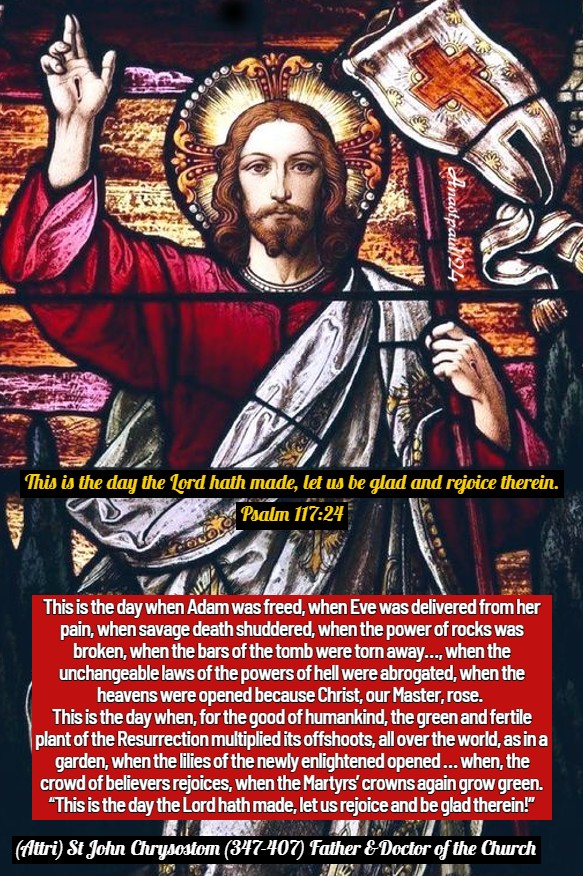
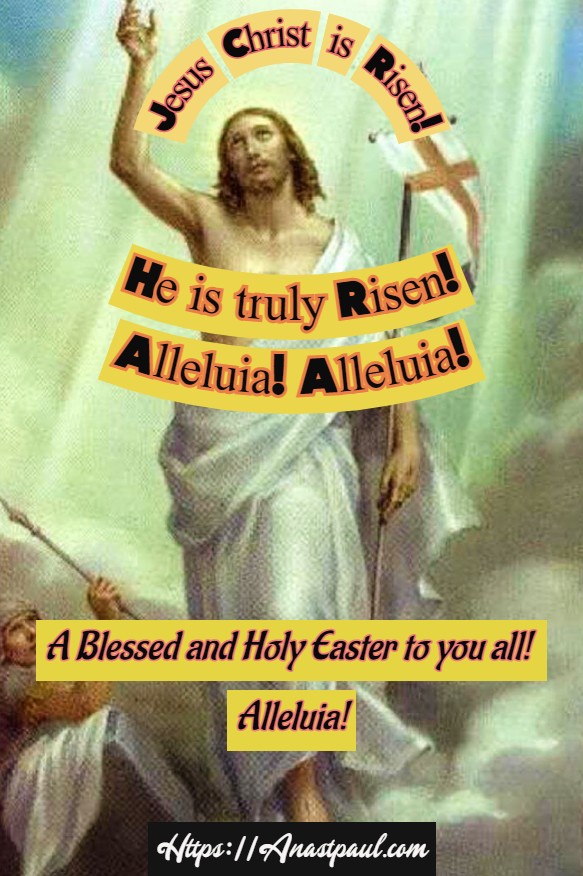





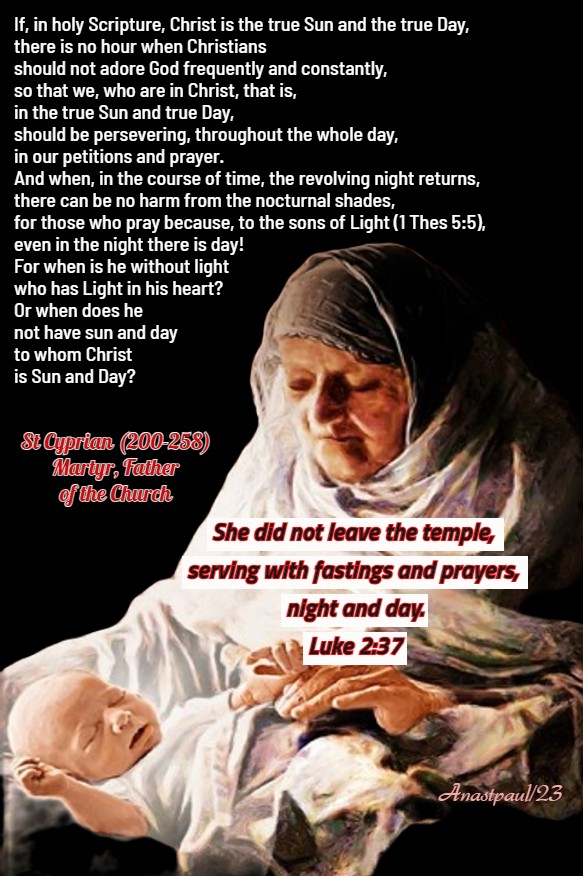





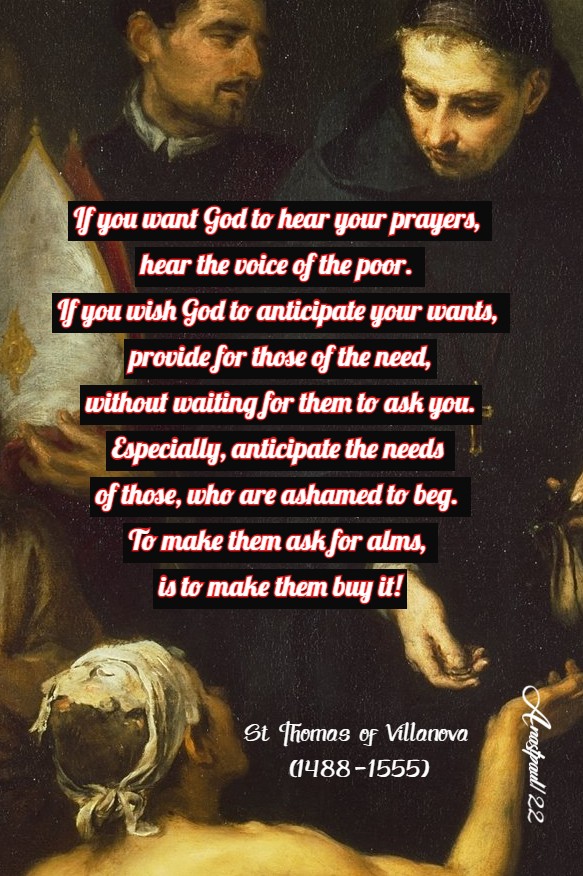










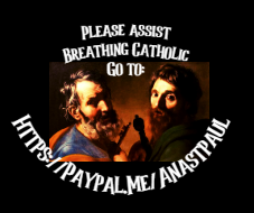


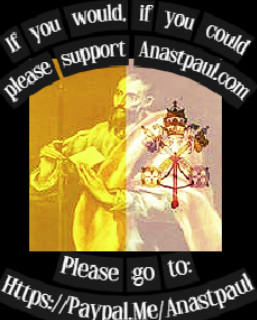

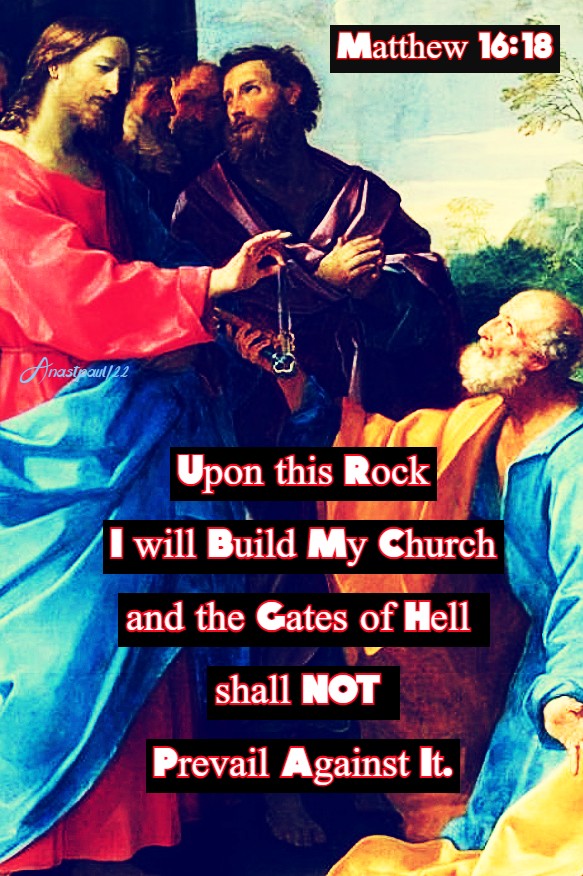
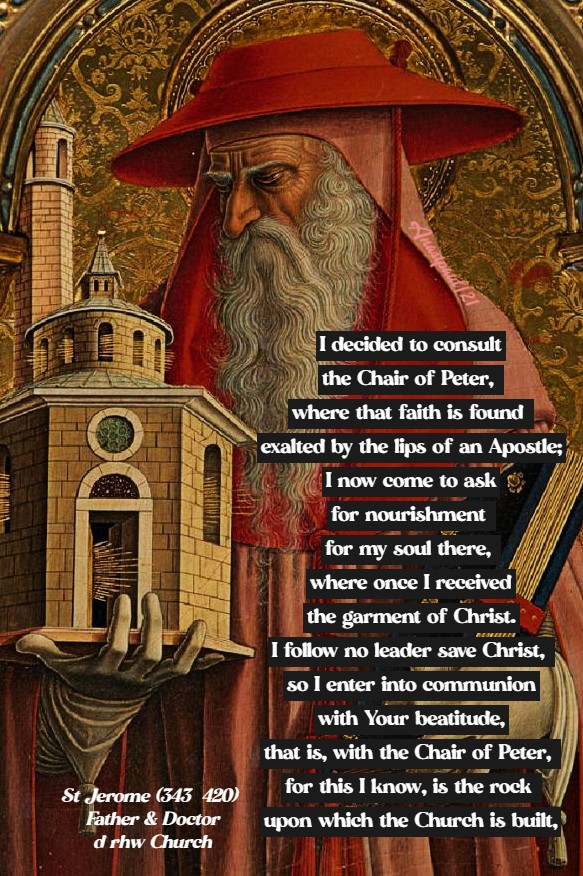
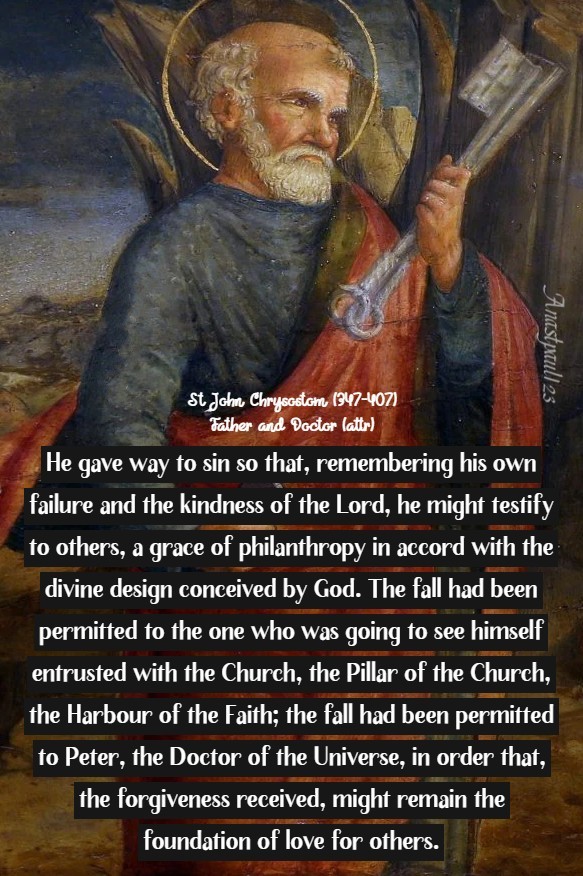
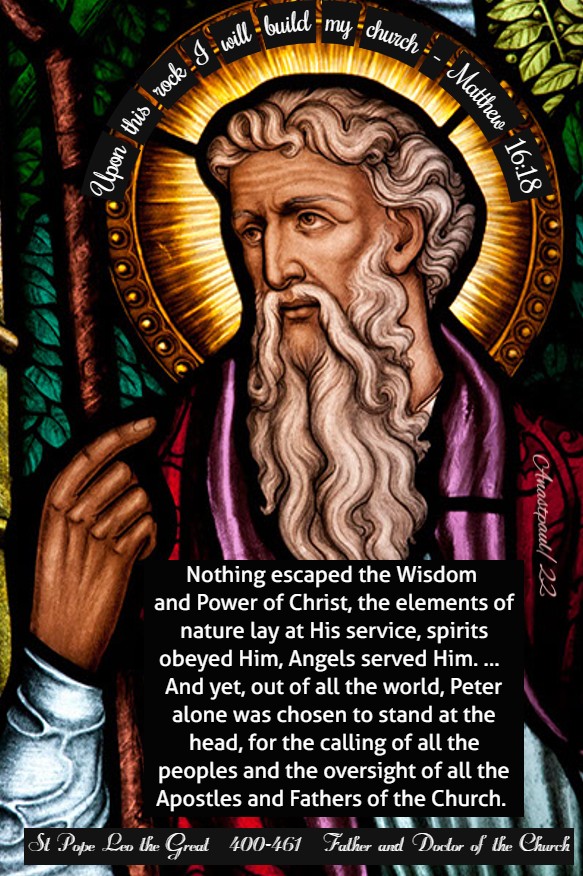















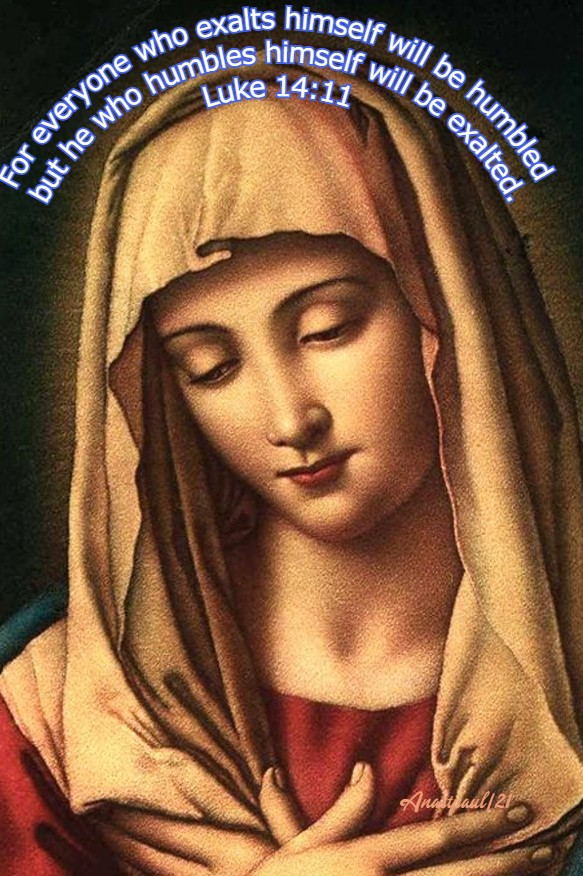






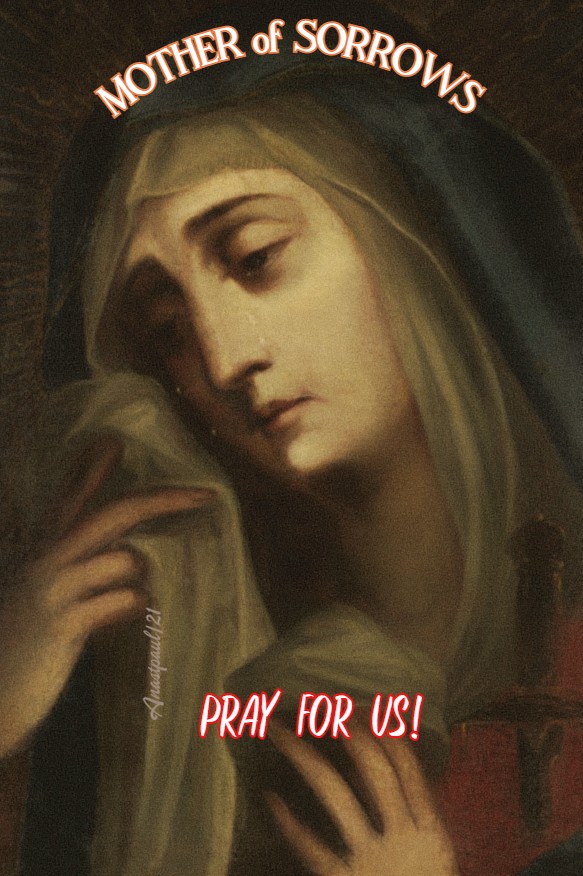




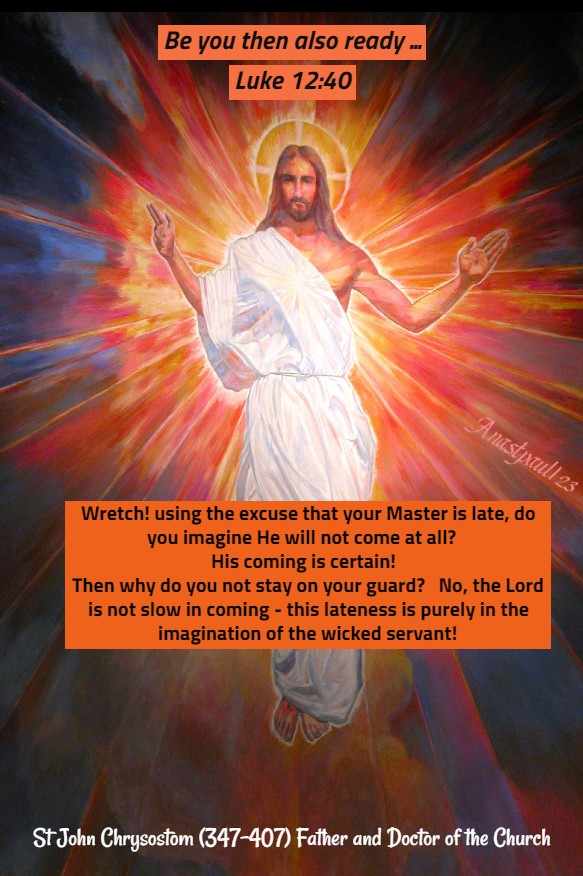

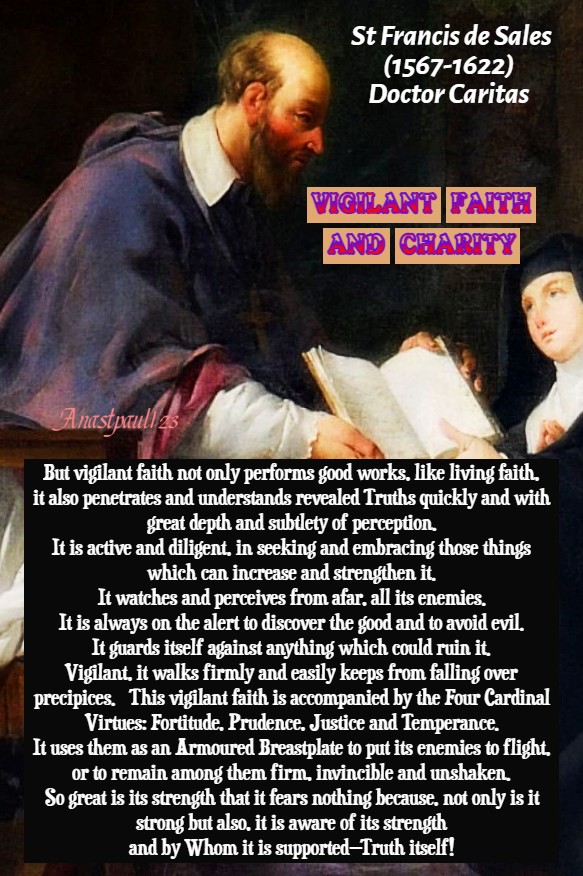

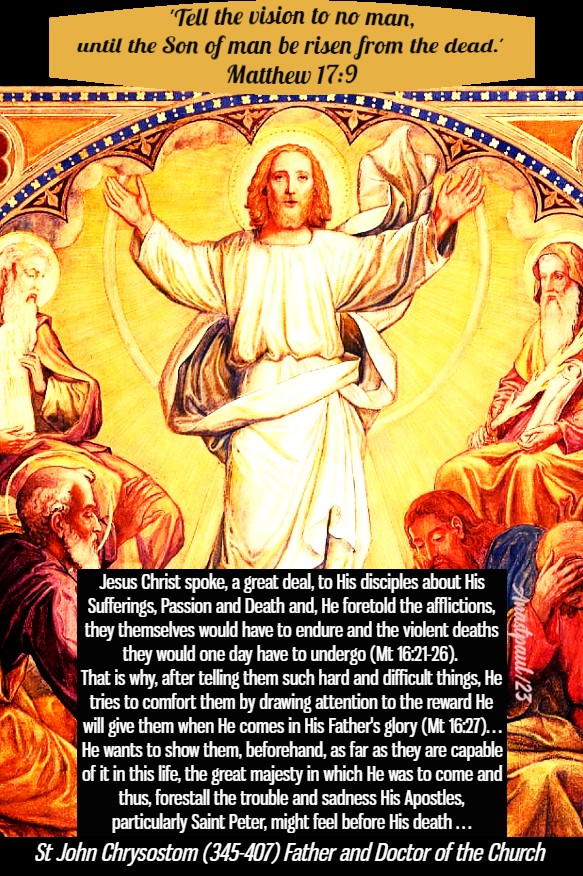







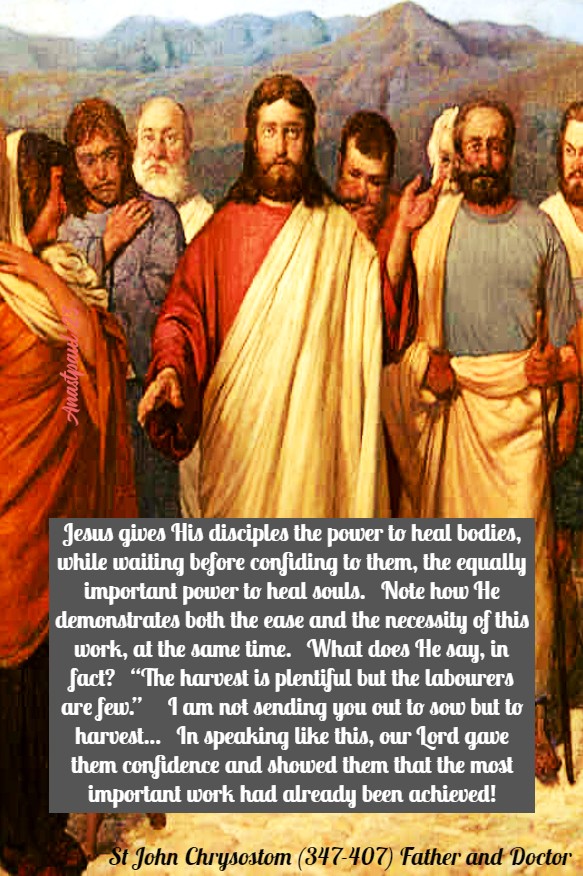












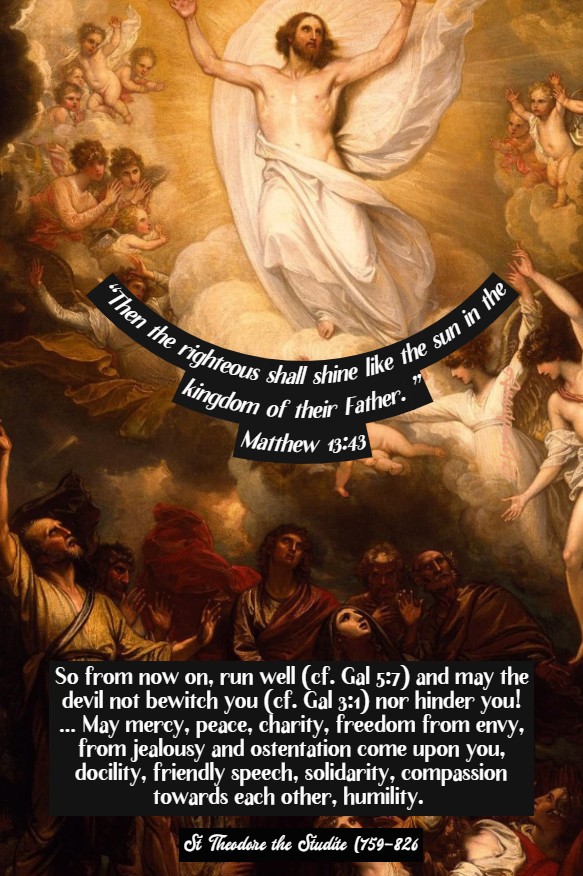














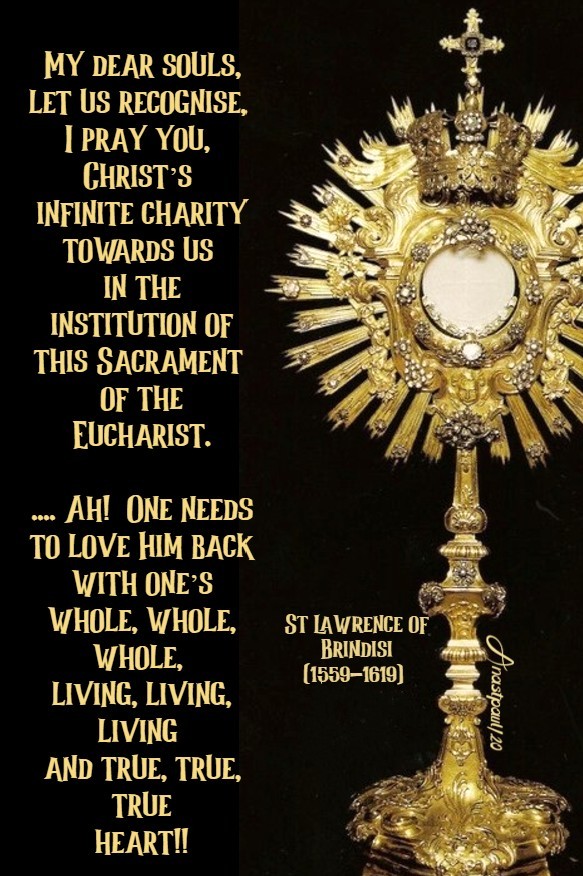
You must be logged in to post a comment.